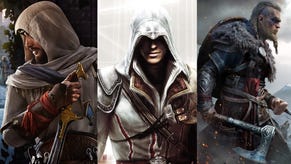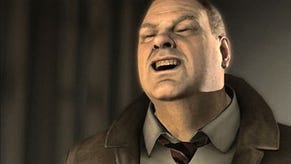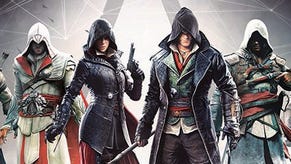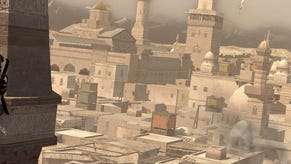Designing Assassin's Creed II
230 new features, 200 design documents, 300 staff, no time for revisions. How did Ubisoft Montreal deliver?
It sounds very much like an attempt to make the game more accessible to more players, by removing the notion of lightning-fast finger reflexes for the free-running, and instead "re-mapping" the task to something that anybody can tackle. New enhancements were made to the movements of the assassin to ensure a more fluid, faster response, particularly in scaling the structures in the game.
"If the movement is fluid enough, players aren't going to think about the second-to-second button presses," he explains. "They're thinking about using the matrix to escape the guards as fast as they can because that is the best way to get out of the situation. Or, I need to get to the top of that church and I'm analysing the climbing points so I can reach it."
The final pillar of the ACII experience is defined by the development team as "social stealth".
"AC1 introduced a system which really is revolutionary. Instead of using light and shadow to make you invisible to enemies, it's your social behaviour that makes you invisible," Plourde reckons. "If there's a killer in the room, nobody's going to know he's a killer until you see behaviour that isn't normal. It's that concept that we're exploring in Assassin's Creed."
However, the basic idea was somewhat under-developed in the original game, with the player able to switch in and out of stealth with a single button press. Altair put his hands together and prayed in order to blend in. The team looked into using the multitude of NPCs in the game to produce a more compelling implementation.
"In ACII what we wanted was to use the crowd as a gameplay tool. In AC1 we had that nice technology where we could display 150 NPCs on-screen so it looks really impressive but each one of those 150 NPCs would be there just to make your life miserable," Plourde says.
"You'd bump into them, they'd jump and scream, guards would detect you, and bad things would happen. What we wanted was to change that and use the crowd for something that is positive for the player. We'd use it to blend and while it's still visually impressive to have 150 NPCs on-screen they're also there to help. Visually it's really nice and there are now gameplay opportunities."
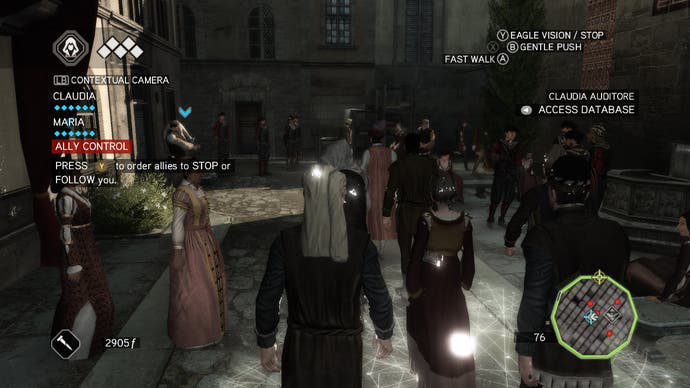
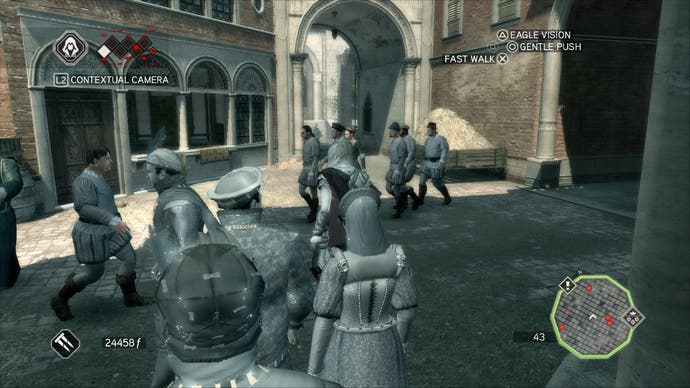
The development team aimed to concentrate on the three gameplay pillars in all aspects of the mission structure.
"If you compare it with ACII where you have the Assassin's Tomb levels... they'd focus the challenge on navigation. After the first prototype it was really obvious that it was fun. It felt right for Assassin's Creed because it was challenging the player on one of the core pillars of the game," Plourde observes.
"It didn't require any extra lines of code to do those missions because it used the basic behaviour of the assassin. This is really important. Not only are you going to end up with something of a higher quality but you're going to save time if you use your main gameplay as the base of the missions."
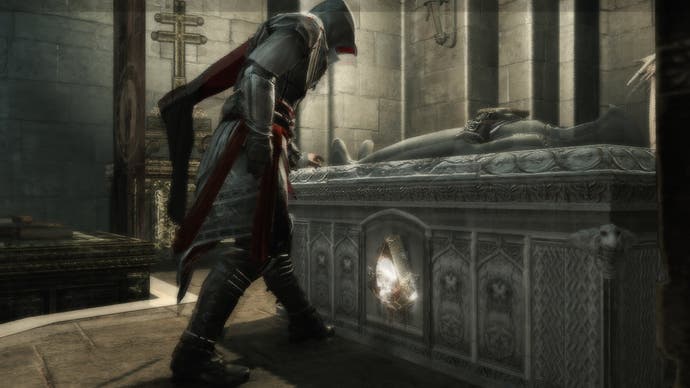
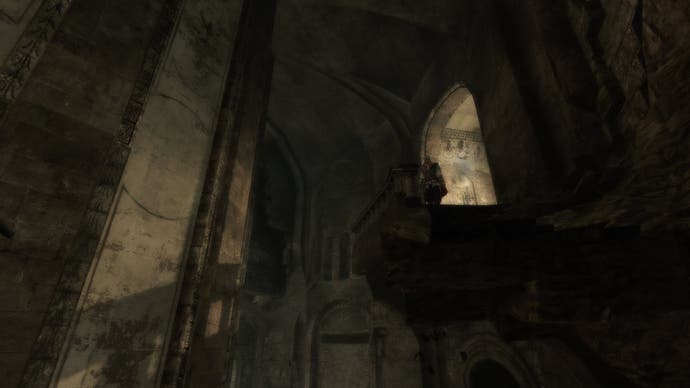
In addition to the pillars, ACII features what the team described as supporting features that gave meaning and depth to the core game, along with what were termed "exotic" elements designed to switch up the pace. The other features could be less polished, so long as those crucial pillars were the best that they could possibly be.
"Every time we made a tweak to one of the three gameplay pillars and we went to playtest, the impact we had in terms of fun was greater than even if we implemented 20 other features," says Plourde. "It was really noticeable. So the thing is that other features can have less polish and you'd still have a really great game. The important thing is to not cut them."
Patrick uses Mass Effect as a case study in how supporting features didn't need to be as brilliant as the core gameplay in order to still provide value and entertainment to the player.
"So you have the Mako and you go on that vehicle to visit planets. If they released a racing game with the Mako it would be the worst game ever," laughs Plourde.
"The mechanic of it is not that great but visiting a planet is something on the side and removing that - for Mass Effect 1 at least - would reduce the game to five maps with a linear corridor. You'd remove the feeling that the world is huge."
Less important features can still contribute to the overall whole in a meaningful manner, but with Assassin's Creed II there were over 230 different elements. Not all of them had to be brilliant, certainly not up to the polish level of the pillars.
"When I finished Mass Effect I'd still had a good experience because the core of their game - the RPG elements and the dialogue - were extremely polished so I didn't have a sour taste in my mouth because the Mako wasn't great. It's important that you remember where your core is then the rest can be something that isn't 100 per cent perfect."
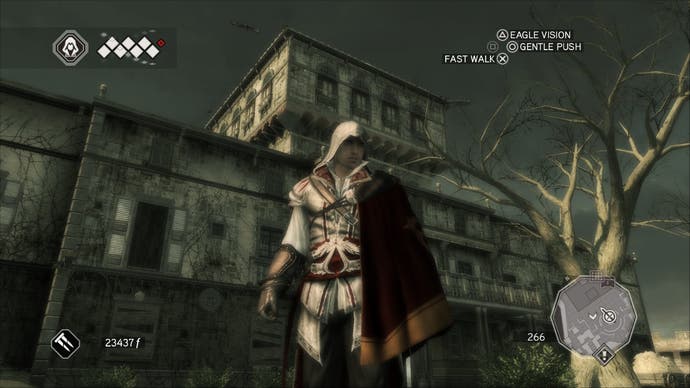
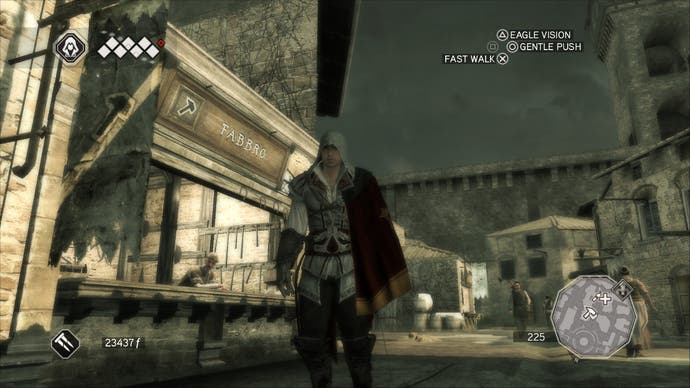
A good example of this within ACII is the economics system. Renovating your village and filling your attic with priceless works of art is a cool addition and it does serve the gameplay too in that you can add to your equipment levels, but it's clearly not a central aspect of the overall game package.
"We have the economics system and overall it lacked depth compared to something like EVE Online. There's no comparison between the two," Plourde states with a smile.
"But for Assassin's Creed it wasn't important because it wasn't a pillar. If we were using the economic system in our game as a core pillar it would've appeared shallow and frustrating. If players would have to grind for money in Assassin's Creed, at some point they'd say 'What the f***?' yet if you treat the same system as a reward it becomes positive in the gameplay experience. It makes the world bigger, everything feels right. It's because we didn't challenge the player on that as part of the core gameplay."

